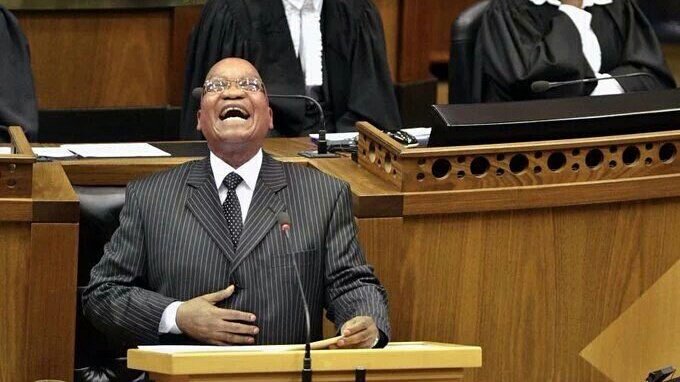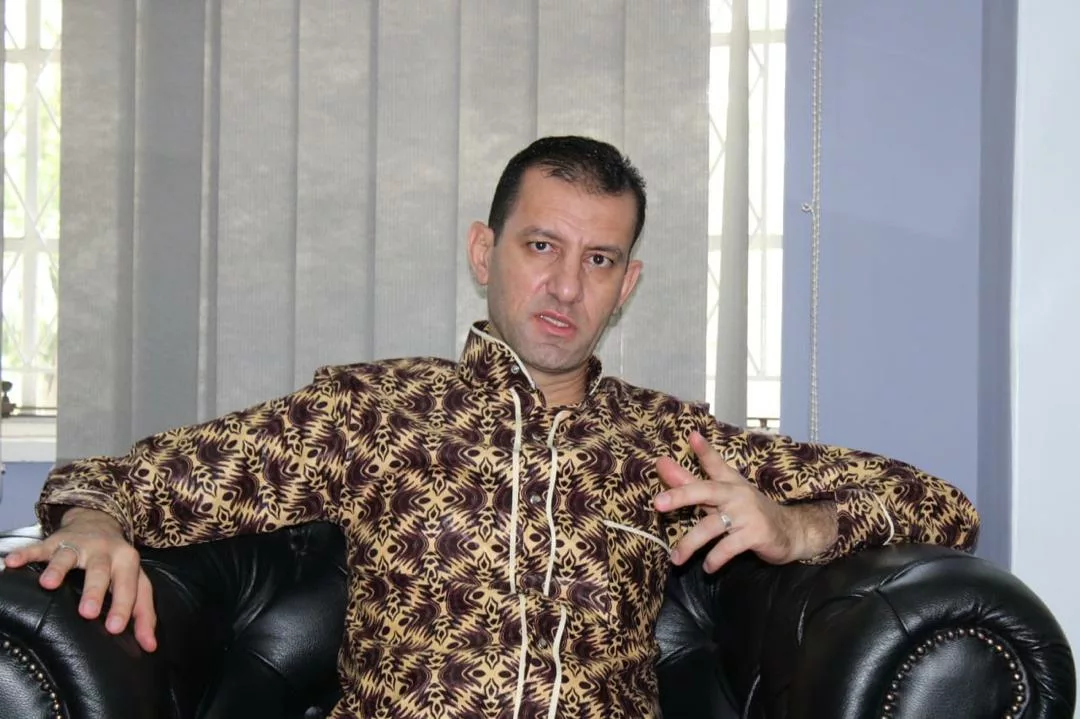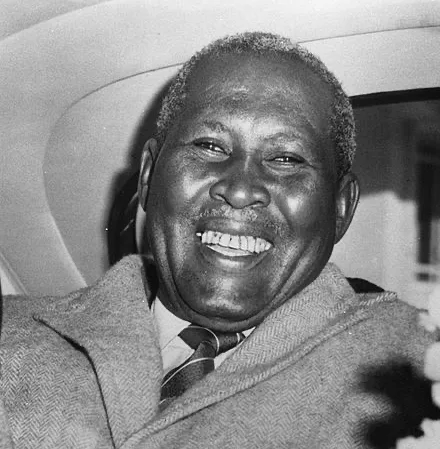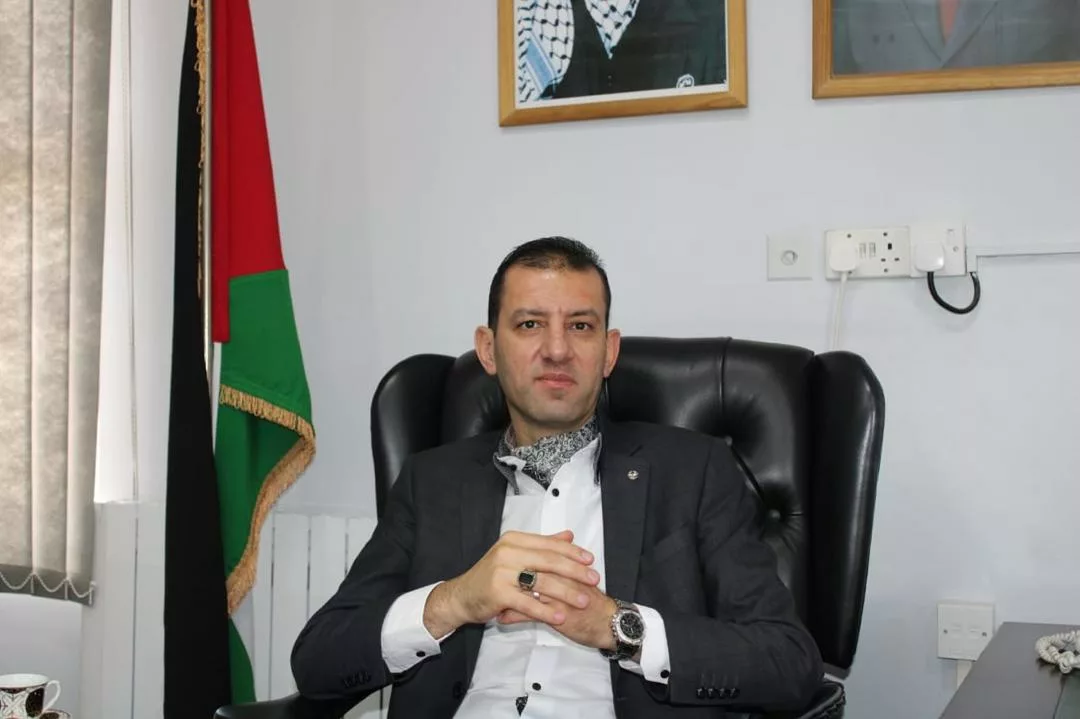|
Getting your Trinity Audio player ready...
|
By Dr Masimba Mavaza
The system of imprisoning former leaders in the world was the prerogative of the French from the time of Napoleon to Sarkozi. France has become accustomed to putting former leaders on trial, but the world is welcoming a new kid on the market in South Africa. It is not only new to it but arguably the only democracy contemplating consigning a former president to prison for a considerable length of time for no reason.
The man who led Africa’s biggest economy, and maintained huge support is now behind the metal doors.
The case of Zuma will continue to cast doubt on the integrity of the justice system, but it will seem less menacing now after his supporters took to the street.
This comes after the order of the apex court came to nought.
The worry is not what happens inside court, but what transpired outside it, in the political space between Justice Sisi Khampepe’s ruling and Zuma’s arrest by his own protection officers.
By Wednesday, there were whispers the court should release a statement to make clear that its order stood and the police could not delay another day. But it’s not the place of the court. The judges had spoken. Any call to do more still was a reflection on President Cyril Ramaphosa’s detached silence. So Zuma did the right thing by handing himself over to prison. What is happening while he is inside has nothing to do with him but everything to do with President Ramaphosa who is able to stop this if he wants to. The million-dollar question is whether any action will undermine the rule of law.
There has been a continued deterioration in the rule of law across the globe. What is alarming seems to be the breadth, persistence, and the particular dimensions of the rule of law that are under the most severe and sustained attack.
The rule of law and human rights are two sides of the same principle; the freedom to live in the dignity which is legally expressed in human rights standards. The rule of law and human rights, therefore, have an indivisible and intrinsic relationship. The Universal Declaration of Human Rights state that it is essential, “if a man is not to be compelled to have recourse, as a last resort, to rebellion against tyranny and oppression, that human rights should be protected by the rule of law”. The Rule of Law is a principle of governance in which all persons, institutions, and entities, public and private, including the State itself, are accountable to laws that are publicly promulgated, equally enforced, and independently adjudicated, and which are consistent with international human rights norms and standards. It boils down to having fair, good, and enforceable laws, which are implemented effectively without discrimination and in a predictable manner. It requires, as well, measures to ensure adherence to the principles of supremacy of law, equality before the law, accountability to the law, fairness in the application of the law, separation of powers, participation in decision-making, legal certainty, avoidance of arbitrariness and procedural and legal transparency.
The rule of law crisis is widespread, and even countries with historically strong governance are under stress.
When Zuma handed himself to prison many believed that the Zuma debacle has ended. Some had commented that “It ended, mercifully, in anticlimatic rather than Hollywood style, just before midnight.” Another writer said
“By the early hours of Thursday morning, Jacob Zuma was on one side of a cell door” little did he know that the seeming end was the igniting of fire the fire with such a velocity and such an engulfing flame which reduced many buildings to ashes. Many businesses have been tripped and are now on their knees. Some never rise again while some start very fast from the kneeling position.
There is cause for reflection on the happenings in South Africa.
On serious reflection, We must not take comfort in the fact that the judicial system did not allow him every fair defense, as tiresome as the courtroom drama has become. It is a self-destructive testament to our political health that this was not as available to Zuma while it was to Nicolas Sarkozy or Saddam Hussein. The events and the application of the law in Zuma’s case were knee shaking.
The courts played politics and were very harsh on Zuma to induce fear and distrust in the people. There is no rule of law within societies if human rights are not protected and vice versa; human rights cannot be protected in societies without a strong rule of law. The rule of law is the implementation mechanism for human rights, turning them from a principle into a reality. The rule of law has played an integral part in anchoring economic, social, and cultural rights in national constitutions, laws, and regulations. Where such rights are justiciable or their legal protection is otherwise ensured, the rule of law provides the means of redress when those rights are not upheld or public resources are misused. While human rights, norms, and standards provide its normative foundation, the rule of law must be anchored in a national context, including its culture, history, and politics.
The way Zuma was tried meant that rights can be violated or ignored or that the rule of law is less important in certain societies. Zuma’s case is a perfect example of the breach of the Rule of law. The Percy liar thing in Zuma’s case is that it was perpetrated by the apex court on the SouthAfrican land. To Ramaphosa Zuma is good riddance.
What Ramaphosa must take into account is that Good governance and human rights are mutually reinforcing objectives, based on core principles of participation, accountability, and transparency. Realisation of human rights, including the right to information, freedom of expression and opinion, freedom of assembly and association, and independence of the judiciary – creates an enabling environment for efforts to prevent and remedy practices violating rights.
The South African government has embarrassed Africa. In a very embarrassing state, the President of South Africa addressed the nation twice in two days. As he spoke to the nation his feet were on the burning soil of South Africa. In a very insulting way in those two days he addressed the nation, Ramaphosa did not even once mention the name of Zuma. It was very clear that the nation is burning because of Zuma’s unlawful detention. Addressing a volatile and boiling nation and fail to touch on the burning issue was disrespectful.
The State holds the primary responsibility to promote and protect the human rights of citizens and other individuals within its jurisdiction, yet if there is no respect for the Rule of law and the rights of individuals and groups in society, decisions will be taken which are not in line with the interests of society in mind, causing violations of the State’s obligations under the core human rights treaties. Where there is a systematic breakdown of the Rule of Law, it directly affects the poorest sections of the population, as a result, they are the ones who grace the streets in anger.
Without mentioning the cause of trouble Ramaphosa called the army. This action was pervasive.
Depending on the level, pervasiveness and form of decline/non-existence of Rule of Law in society can have devastating impacts as seen by destruction of property.
All that is needed is for the president to address the issue and cool down the restless violent section of the people. Because of the failure of the president to address the issue the people became more agitated.
Disadvantaged groups and persons will suffer disproportionately by the deployment of soldiers in the streets.
The unfairness of the whole issue is that the EU and UN are very silent. If this was Zimbabwe involved there will be committees and committees sent over. Zimbabwe would have been sanctioned more.
The question is whose interest is the South African President serving. The Zuma problem has become a milestone in the spread of Afro-nationalism.
When one looks around the trials and tribulations of Jacob Zuma, metaphorically, of course, it’s hard to shake the sense that it is a calculated punishment of the nationalists. There are powers who are meant to take revenge. As long as the Soth African government is seen to be attacking the nationalists there will be no strong or any reprimand from the world’s hypocrites self-declared world police.
Zuma has become a victim of Rule of law or is it a rule by Law? The rule of law is the authority and influence of law in society, especially when viewed as a constraint on individual and institutional behavior; (hence) the principle whereby all members of a society (including those in government) are considered equally subject to publicly disclosed legal codes and processes. In the case of Zuma, his shocking sentence was given without regard to the equality maxim. We must remember that the term rule of law is closely related to constitutionalism as well as Rechtsstaat and refers to a political situation, not to any specific legal rule.
We must again remember that Zuma is not in prison for corruption neither was he convicted of any crime. His conviction is on contempt of court. ‘It is better for the law to rule than one of the citizens’ – ‘Even the guardian of the laws is obeying the laws’ – ‘Where law ends, tyranny begins’ but the irony is that the law fulfils the tyrant’s wishes.
These detention of Zuma reflect the spirit of the rule of law and its paramount importance to the promotion and consolidation of democracies. In ideal democratic states, respect for the rule of law is a crucial precondition for the respect of human rights and it is tightly linked to the promotion of good governance so essential to sustainable development.
The legal system is also crucial for economic growth since it consists of predictable, enforceable, and efficient rules required for a market economy to flourish. So Zuma complied with the law even though it was a bad law. As a good leader, he respected the law even though the law was not correctly applied. The violence which followed his arrest is the flow of anger from his supporters. Therefore, the rule of law also has an impact on trade security, strengthening property rights, the settlement of civil disputes, and is crucial for strengthening the economy and promoting all forms of investments. Investor confidence is wiped away when existing businesses are being destroyed in pursuit of fairness. there is a broad consensus on the principle that without governance based on the rule of law that promotes political and social stability and legal certainty, there cannot be investment and assumption of risk that form the basis of market economy development, let alone sustainable development. Indeed, the strength of the rule of law is the best predictor of a country’s economic success.
Furthermore, deficiency in the rule of law encourages high rates of corruption, with further devastating consequences on the confidence of economic actors. Respect for legal authority and law (and also moral values and standards of behaviour) is what distinguishes a civilised order from the primitive and the anarchist. It implies that substantive rules and procedures are observed and that change will be effected in accordance with such rules and procedures. Respect for the rules and procedures arises from their creation by a higher legal source, a constituent assembly, an independent judiciary or an elected Parliament. The growth of and magnitude of modern government is such that it is difficult for anyone to respect all laws. Respect for law is possible only where the law is limited and accessible.
There are active pressure groups and interests who, with media connivance, are able to flout the law and avoid the consequences. Trade unions, conservationists, peace protesters, feminists, and others are able to flout the law and get away with it — and in the process achieve their ends. This has had the unfortunate consequence that individuals (eg farmers and small businesses) who have hitherto respected the law and legal procedures are now threatening to flout the law — as the only way of achieving their ends. They have seen trade unions flout the law with impunity and profit therefrom. There is thus a gradual diminution of respect for law in the community as a whole.
Not all authority is based on law. Private institutions (religious bodies, the family, and schools) exercise a degree of authority but subject to the law.
In western civilisation, a hallmark of authority, legal and non-legal, has been that it was subject to legal checks and balances as well as to non-legal restraints (eg moral values, media, and other criticism). The exercise of authority has been far from perfect. But when compared with other cultures and governmental systems, authority in the western democratic order has a record of fairness and justice second to none. Authority in the western democratic order is not unduly hierarchical and institutionalised, nor is it supported by the secret police and a range of arbitrary powers in the hands of the government.
The system itself provides mechanisms for change. These, no doubt, work slowly, but history demonstrates that productive change is that which is carefully or slowly developed or which develops spontaneously and gradually.
The acceptance, by individuals and groups, of law and parliament as the means of effecting change is an essential aspect of the western democratic order. When these avenues are not accepted and civil disobedience, violence, terrorism, and other unlawful means are resorted to as the means of effecting change, the inevitable consequence must be a gradual undermining of and loss of faith in, the entire system. If the problems increase and governments restrict individual liberties or lose control of law and order, the consequences become cyclic and will escalate. Toleration and pluralism within a set of broad-based values are vital to the operation of the system.
By incarcerating Zuma and failure to even mention his name during the address to the nation by Ramaphosa is indeed an insult.
As usual, he allowed the process to unfold. It is politically astute to let the law deal with his political opponents rather than be accused of using organs of state to purge them.
But while the president habitually plays the long game, hard blows land on the public body, and the damage is left “to percolate”, as the Zondo commission argued in court.
It allowed a minister to write to the chief justice, on no authority, to say he will let a deadline to carry out a court order pass. The word “authoritarianism” is correctly used to mean the unfair and oppressive exercise of authority, but it has now come to be used for almost any exercise of authority by traditional sources of authority. While there is an attack on traditional sources of authority, the attackers are not averse to creating new sources of authority. Powers are vested in courts and tribunals such as the Human Rights Commission which are not subject to the procedural and other limitations of the common law and which, therefore, provide far greater scope for abuse of power.
South Africa is a country that has been dubbed to be very democratic. The deployment of the army to the streets is wrong. However, the worst of all is the looting.
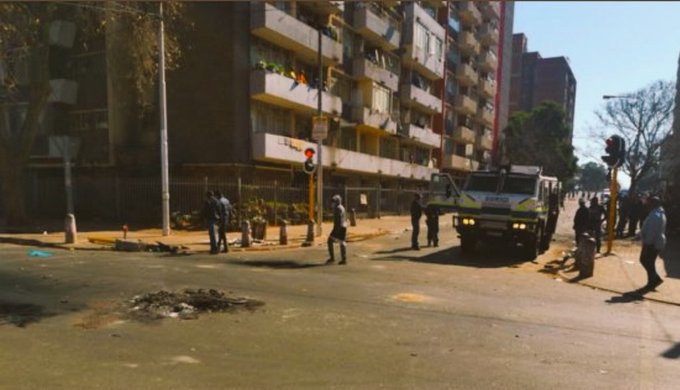
There is no justification whatsoever to loot store shops and any business out there. To let this situation out of hand shows the weakness exhibited by the President of South Africa. What is at play here is that the revolutionary leaders are under attack and Ramaphosa in his statement blames tribal mobilisation. Instead of dealing with the problem, Ramaphosa dwelt on tribal differences. This does not help the situation but just raises tension.
One wonders why on earth does a mob loot a coffin shop or a cement shop are they all bereaved or just idiots. Those people running up and down in the streets are not more guilty than Ramaphosa himself


